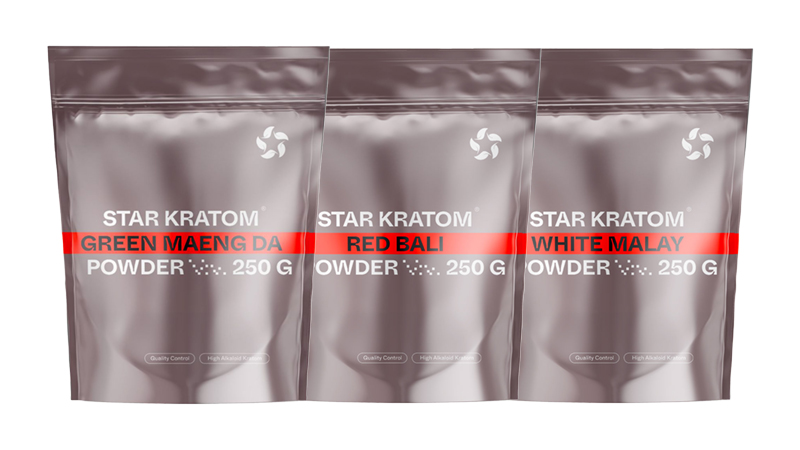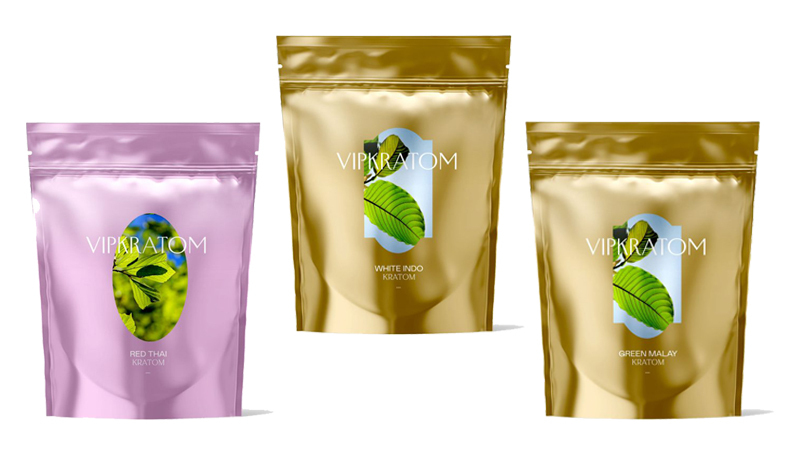Best Kratom for Pain Relief – Top Strains Reviews in 2023
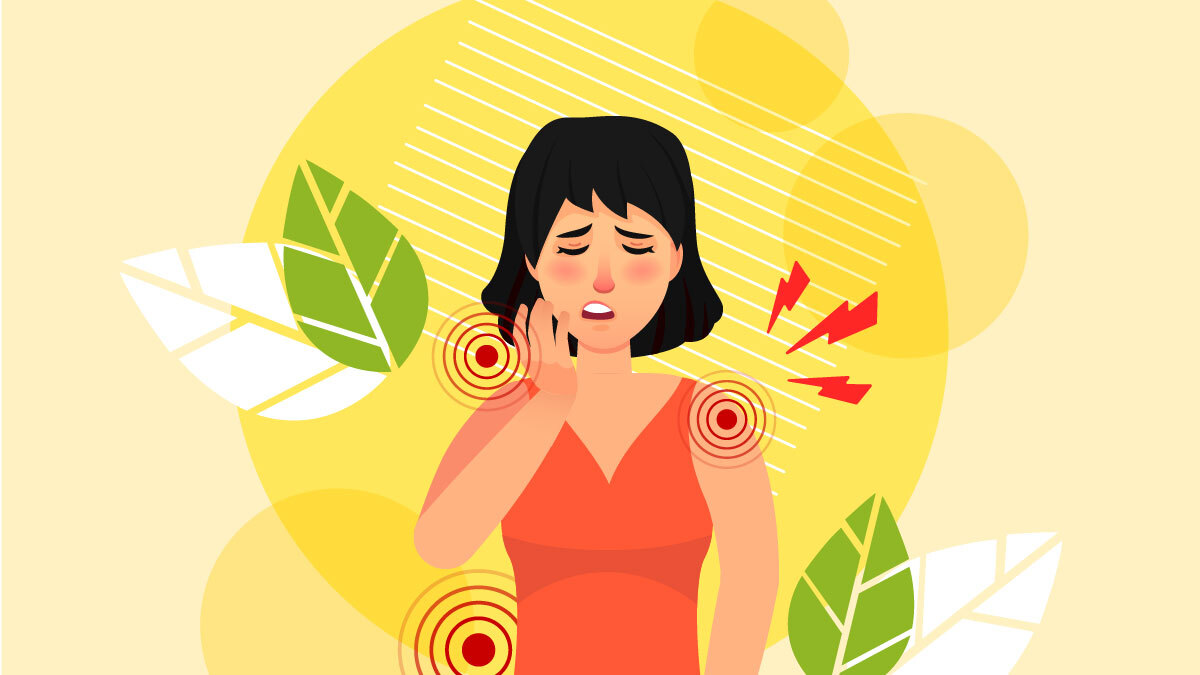
In Southeast Asia, various cultures have used Mitragyna speciosa for centuries, commonly known as kratom, to manage a wide variety of symptoms. One of the most common uses of this tropical evergreen tree is for pain relief.
Here, we’ll cover the details of using kratom for pain and provide specific advice on what types of kratom offer the most support overall.
At A Glance: Our Top 5 Picks for Kratoms for Pain Relief
Best Kratom Strains for Pain Relief
In general, red vein kratom is going to offer the greatest relief from pain. Red vein kratom contains the highest concentration of an alkaloid called 7-hydroxy-mitragynine, which is primarily responsible for the analgesic action of kratom.
In fact, 7-hydroxy-mitragynine was found to be nearly 13 times more potent than morphine and 36 times more potent than mitragynine [4].
Kratom is available in both capsules and raw powder — both options are excellent options for managing chronic pain.
The three most popular strains for pain relief are Red Maeng Da, Red Bali, and Red Borneo. These are the three most potent strains that provide muscle-relaxing and sedating effects.
| IMAGE | PRODUCT | |
|---|---|---|
| Best Overall  | Red Maeng Da Kratom
| CHECK BEST PRICE → |
 | Red Bali Kratom
| CHECK BEST PRICE → |
 | Red Borneo Kratom
| CHECK BEST PRICE → |
 | Red Jongkong
| CHECK BEST PRICE → |
 | Super Green Malay
| CHECK BEST PRICE → |
 | Green Borneo
| CHECK BEST PRICE → |
 | Yellow Kali Kratom
| CHECK BEST PRICE → |
Red Maeng Da Kratom

Red Maeng Da is one of the most popular strains on the market. It’s notoriously potent and long-lasting and offers the full spectrum of kratom’s effects across all strains.
Maeng Da kratom is available in three colors — white, green, and red. Red is better for managing pain or improving sleep, white is better for increasing energy and focus, and green is a good middle-ground between the two.
Most kratom vendors offer Red Maeng Da, but it’s important to order from reputable brands only. Some companies falsely market cheap, underpowered kratom as Maeng Da.
A great source of potent Maeng Da kratom in all colors is Kona Kratom.
Red Bali Kratom

Contrary to its name, Red Bali is not solely from Bali. It is popular to trade in Bali but is a very popular strain across the world.
The strain most often comes from Sumatra and Borneo. The soil in these regions produces a high concentration of alkaloids within the plant’s leaves, making its effects stronger.
Red Bali is one of the most potent red vein varieties, although it is not as strong as the Maeng Da strain. However, some users report that the effects of Red Bali tend to last longer, making it a better choice for people dealing with chronic pain.
Red Bali’s popularity is often a point of reference for evaluating other varieties. Since the plant is so widely available, it is also one of the more affordable strains.
Red Borneo Kratom

As you may be able to guess from the name, Red Borneo comes from the Southeastern island of Borneo.
Borneo is one of the world’s largest islands, divided between Indonesia, Brunei, and Malaysia. Red Borneo primarily grows on the Indonesian portion of the island.
The plant grows along riverbanks across the island — many farmers believe that this factor makes the strain more potent than other red vein varieties.
Red Borneo has been used as a traditional form of medicine in nearby regions for hundreds of years. People use it to ease many ailments, including chronic pain, depression, and anxiety.
While Red Borneo’s effects are potent enough to feel immediately, they can be relatively mild when taken in low doses. Many users consider this to be an appropriate strain for beginners.
Red Jongkong

Red Jongkong kratom is a rare strain with potent analgesic action.
This strain is only grown in a small region within the Jongkong jungle near Kalimantan Barat. This forest is protected, so only farmers who have inherited the land from previous generations can continue to grow here.
Additionally, the thick jungle landscape this kratom tree thrives in is notoriously difficult to work in. But it’s well worth the effort.
Behind Maeng Da, Jongkong is known for being some of the most potent kratom around. It’s more expensive and significantly harder to find. Most vendors who carry this strain run out in just a few months until the next harvest the following year.
If you can find this strain, it’s worth picking up a bag or two.
Super Green Malay

Super Green Malay is one of the most well-rounded strains available. It’s a great option for people who want to use kratom to manage pain but also want the other benefits from kratom (energy-boosting, anxiolytic, sleep-supportive, etc.).
There are two Green Malay strains that work great for this, but the Super Green Malay is the stronger of the two.
Green Borneo

The Green Borneo strain is another good option for people who want primarily painkilling action but also like the idea of a more energizing effect profile.
This strain is especially useful for managing pain first thing in the morning for this reason. Certain kinds of arthritis, muscle pain, and immunological pain hit the hardest first thing in the morning when you wake up. A solid energizing, painkilling strain like Green Borneo (or Super Green Malay) are excellent options for people experiencing this specific form of pain.
Yellow Kali Kratom

Yellow kratom refers to a blend of red and white kratom. The Yellow Kali strain, specifically, is a mix of Indonesian-grown red and white strains cultivated in the Kalimantan region of Indonesia.
Kratom from this region is widely considered some of the best kratoms in the world.
The effects of single-origin kratom can vary from one season to the next, depending on climate conditions. This can make the effects of kratom unreliable sometimes. A batch from one year may have high painkilling capacity and very little the next.
Yellow vein kratom seeks to avoid this issue by blending two or more strains together until they get the desired results. This ensures the effects of yellow kratom remain the same year after year.
What Type of Kratom To Take For Pain
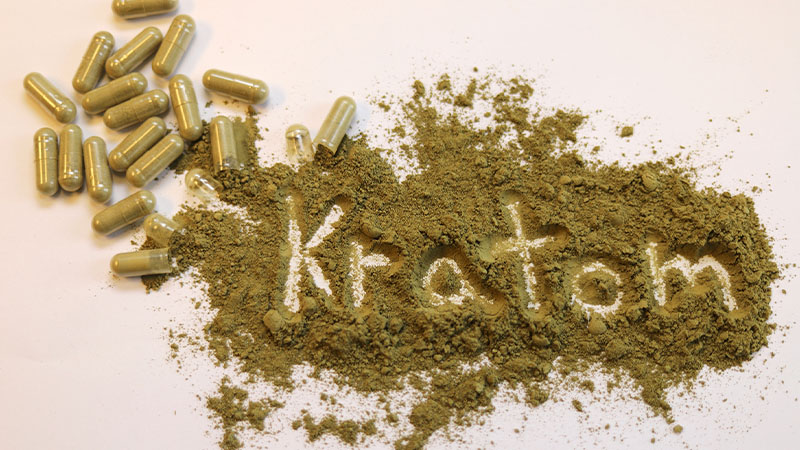
Virtually all kratom is going to offer some relief for managing pain, but some are clearly better than others.
The general consensus among experts is that the red vein kratom strains are the best for managing pain. These strains have the highest concentration of an alkaloid called 7-OH-mitragynine, which has been shown to provide potent painkilling benefits.
People who take kratom for pain should opt for a strong red vein strain (such as Red Bali, Red Maeng Da, or Red Borneo, among others) in the form of either a powder or capsules.
Kratom Powder
Kratom powder is generally better for pain relief because it makes it easier for people to consume higher doses (several grams at a time). The painkilling effects of kratom usually begin appearing around the 4-gram mark.
The easiest way to take kratom powder is through a method called “toss and wash.” Users will measure their dose of kratom using a scale or measuring cup and then quickly knock it back with a cup of water.
The taste is horrendous, so it’s important to drink it as fast as you can and follow it up with some juice. Orange or pineapple juice is the best for masking the taste.
Kratom Capsules
Alternatively, you can opt for kratom-filled capsules instead. The benefit is that you won’t have to taste the bitter, grassy kratom. The downside is that you’ll need several of them to feel the painkilling benefits of the plant.
Most 00 capsules contain around 750 mg of kratom powder. Some more, some less, depending on how finely ground the kratom leaf is.
This means that for a 4-gram dose, you’ll need at least 5 capsules at a time. For people who need higher doses (which is common with people using kratom for pain), you’ll need upwards of 10 or even 12 capsules at a time. This may be a bit much for some people, and the gelatin content of the caps can irritate the stomachs of some people.
Kratom Tincture
Kratom tinctures are made by extracting the active ingredients of the kratom leaf into a liquid. Tinctures can be concentrated to provide the equivalent amount of kratom leaf into a much smaller volume.
Tinctures are often flavored to help mask the bad taste of kratom, and oils in the tincture base dramatically improve the absorption of the dose.
Tinctures aren’t always available for every strain, but they are a great way to use kratom on a consistent basis if you find the taste of the raw powder too hard to palate.
What’s the Dosage of Kratom For Pain?
The dosage range for kratom is between 2 and 12 grams.
For pain, the threshold is usually around 4 grams, but some people need much more.
When using kratom for the first time, it’s wise to start with a lower dose first and increase once you’re familiar with how it feels in your body.
Start with 1 gram, then another gram an hour later. If you still feel good and want to take more, you can take the other 2 grams to reach the 4-gram recommended dose.
If you still don’t feel any improvement, increase the dose by one gram per day until you find what works for you.
Make sure you stop when you find a dose that works. There’s no need to take more kratom than you need. If 4 grams works for you, stay at 4 grams. Taking more is only going to increase the chance of uncomfortable side effects.
Kratom Strains: Red vs. Green vs. White
When choosing the best kratom for managing pain, it’s important to understand the differences between red, green, and white vein kratom.
What is Red Vein Kratom?

Different varieties of the plant tend to produce unique effects. Red vein strains are among the best kratom for pain relief due to the alkaloid levels present in the leaves.
These alkaloid levels increase as the plant ages. Red vein strains come about when the plant has reached its full maturity and has the highest alkaloid potency.
Each strain has a slightly different chemical makeup that will affect the plant’s effects.
The primary alkaloids contained in the leaves responsible for the painkilling effect include:
- Mitragynine — Predominant alkaloid in most kratom samples. Activates the opiate receptors [1].
- 7-Hydroxymitragynine — Second most predominant alkaloid. Most concentrated in red vein kratom. Activates mu-opioid receptors [2].
These chemical compounds work within your body to create a myriad of results. In the strains discussed above, these alkaloids work on the pain receptors in the brain. Unlike opiates, however, they bind only partially to the opioid receptors, so they don’t create the same risk of addiction.
The alkaloids also work to relax your muscles, which helps to reduce pain and cause sedative effects. They also affect your mood and can produce feelings of euphoria.
What is Green Vein Kratom?

Green vein kratom is the most versatile. People who want to use kratom for different purposes but only want to buy one strain will usually go for a green strain.
Some green strains are better for mood or energy, some are better for pain — but all of them can be used for just about any of kratoms known applications.
The biggest difference in effects from green vein kratom comes from the dose rather than the specific strain.
Higher doses of green vein kratom (more than 6 grams) are almost always sedative and analgesic, while lower doses (less than 5 grams) are almost always energizing.
What is White Vein Kratom?

White vein kratom contains higher concentrations of mitragynine and lower levels of 7-hydroxymitragynine. This ratio makes white vein kratom much more energizing than red or green strains.
White vein kratom is not normally recommended for pain but can be useful for people who experience feelings of lethargy or lowered mood alongside their pain.
Many people who use kratom often will keep some red vein kratom around as their primary painkiller but will mix in some white vein for their morning dose. The effects of the white vein give the mix a stronger kick first thing in the morning.
How Does Kratom Help With Pain?
Many of the active alkaloids contained in kratom target the opioid receptors — which are one of the primary neuroregulatory networks involved in controlling the perception of pain.
By activating these receptors, kratom alkaloids can block or mute pain signals before they reach the brain.
This opiate action is the primary mechanism kratom uses to dull pain [5]. It works in a similar way to conventional painkillers like morphine or oxycontin, but with some key differences.
Kratom alkaloids may act as opioids, but they are entirely different. They don’t affect breathing (which is what makes opiates dangerous), and they target more than just the opiate receptors.
Kratom alkaloids also target dopamine, serotonin, GABA, and norepinephrine receptors [6,7]. Some of these actions are what give kratom its anxiolytic (anti-anxiety) actions, and others provide stimulating benefits.
Kratom’s complex interaction with our neurochemistry works to both improve the effectiveness for managing conditions like chronic pain and alleviate many of the side effects associated with synthetic painkillers.
Kratom vs. Prescription Painkillers
A lot of people who use kratom for pain turn to this plant as an alternative to addictive prescription painkillers.
But how do they compare? Is kratom truly strong enough to be used instead of medications like oxycontin or morphine? Are they safe to take together?
1. Potency
There’s no doubt about it; prescription painkillers are going to be stronger than kratom. These substances are designed to target highly specific pain pathways to dull the pain transmission before it reaches the brain.
But stronger isn’t necessarily better. This high specificity of prescription painkillers is also what makes them so dangerous and addictive.
While it’s true that synthetic painkillers are generally stronger, the potency of kratom shouldn’t be underestimated. There are more than a dozen active ingredients in kratom — each one targeting a different pathway to reduce pain. This makes kratom much more versatile in the types of pain it can treat.
For example, many people who find opiates don’t work for certain kinds of inflammatory pain hail kratom for its effectiveness. This is because many of the active alkaloids in the plant work through a combination of anti-inflammatory, adrenergic, and opiate effects [9]. Conversely, opiates only work within the opiate system.
2. Addiction Potential
Opiate addiction has reached epidemic proportions in the US and around the world. This epidemic simply doesn’t exist for herbs like kratom.
The reason prescription opiates are so much more addictive is simple. These drugs are so good at targeting a specific receptor, it’s easy for the body to become tolerant by simply hiding or blocking these receptors. This is how dependency forms. Users eventually reach a point where having the drug is necessary for maintaining homeostasis (balance).
Kratom can still be addictive, but it takes a substantially longer period of time for dependency to form [3]. This is because kratom target many different receptors, not just one. There are also some indications that kratom contains anti-addictive compounds that help regulate the receptors and reduce the chances of becoming tolerant [8].
3. Risks of Overdose
Opiate medications were responsible for over 90,000 deaths in 2020 alone. These drugs are very dangerous and are fueling the epidemic of addiction-related deaths worldwide.
The main cause of death from opiate overdose is respiratory depression. Opiate medications inhibit the activation of a compound called beta-arrestin-2. This leads the user to stop breathing, eventually becoming hypoxic.
Kratom removes a significant portion of this risk in two ways:
First, it’s difficult to consume fatal doses of kratom. Kratom becomes emetic (makes you throw up) long before toxic doses are achieved. If you take a ton of kratom, you’ll end up throwing it up and feeling terrible for an hour or two. It’s hard to take more kratom when someone is in this condition. With opiates, this isn’t the case. They don’t make you feel like throwing up until it’s far too late.
Secondly, kratom alkaloids don’t block beta-arrestin-2. Again, this is the primary cause of death from overdosing on opiates.
Where to Buy the Best Kratom for Pain?
If you are looking to buy the best kratom for pain relief, it is essential to consider where you will purchase it. You want to ensure you are purchasing genuine products that have gone through testing for quality assurance.
Some kratom retailers near you try to cut their products with other substances to save costs. To help you avoid these potential dangers, we’ve put together a list of our top vendors. Each of these vendors has a history of selling quality products, so you can feel safe trying their products.
1. Kona Kratom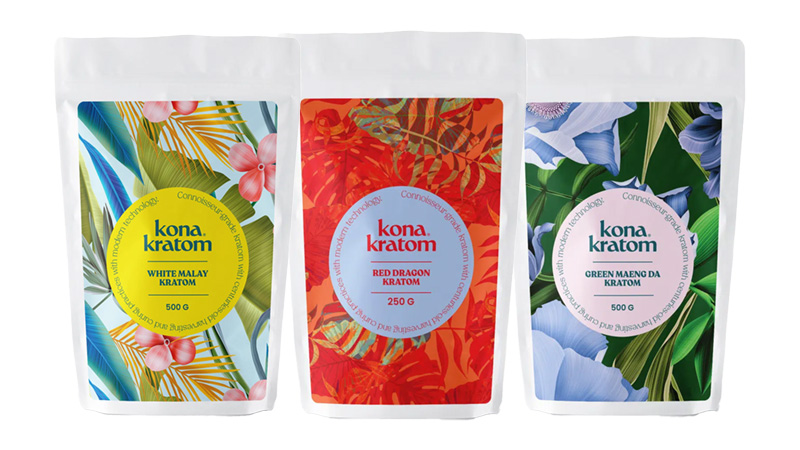
If you’re seeking the best kratom for pain, featuring a wide range of analgesic strains, such as Red Borneo and Maeng Da, Kona Kratom has various options to choose from.
Kona Kratom is a vetted and approved vendor. As a member of the American Kratom Association, it has proven its reputation and product quality.
The company also has a strong relationship with its farmers in Southeast Asia. Years of working with the same farmers mean that the supplier can ensure quality and better prices.
Key Points
- Best selection with a wide range of strains
- Excellent prices
- American Kratom Association membership
- Third-party testing for all products
- A great relationship with SE Asian kratom growers
2. Star Kratom
Star Kratom is a fantastic option if you’re looking for reliable and speedy shipping. Especially when you’re dealing with pain, you don’t want to wait weeks for pain relief. This vendor ensures you don’t, delivering packages 2-3 days faster on average than other suppliers.
Star Kratom is relatively new, but its efficient delivery system has helped the company stand out quickly. Its processing facility is near a major postal hub, so multiple deliveries go out per day.
The customer service is also supportive and understanding. If you find that the strain you bought doesn’t offer enough pain relief, you can return your package and get your money back, no questions asked.
Key Points
- Faster shipping
- A small, family-owned business
- Great variety
- American Kratom Association membership
- Third-party testing for all products
- Helpful money-back guarantee
3. VIP Kratom
If you value quality over quantity in a vendor’s selection, VIP Kratom is the supplier for you.
The company has a rigorous vetting process that ensures everything in its selection is grade-A.
While other brands carry top-shelf strains, VIP Kratom’s claim to fame only carries premium kratom. When you shop with this vendor, you’ll never have to worry about weak or ineffective strains or packages with contaminants.
The prices might be a little higher, but the premium quality guarantee makes the costs worthwhile. The commitment to quality also means the selection is smaller than other vendors, but it’s all because they refuse to carry anything less than the best.
Key Points
- Top-shelf kratom
- Selection of the best kratom for pain relief
- Potent and rare strains not found elsewhere
- American Kratom Association membership
- Third-party testing for all products
How to Assess Kratom Vendors
If you Google “buy kratom,” you’ll find a ton of vendors operating exclusively online, all promising the same thing.
But it’s important to know that not all kratom vendors are created equal. In fact, there are probably more non-reputable vendors than reputable ones.
The problem is that the kratom industry is full of middlemen, each trying to take a piece of the pie for themselves. Every time kratom changes hands, the quality takes a hit and the price increases.
Knowing how to tell the difference between a poor quality vendor and a good one is critical for getting the best value for the money and for ensuring the products you order are safe.
Here’s our method for distinguishing the quality of kratom vendors:
1. Check For AKA Accreditation
The American Kratom Association (AKA) exists solely as a way to maintain a minimum bar of quality within the kratom industry. In order for a kratom vendor to be approved, they have to prove the facilities they run meet the rigorous expectations of the association.
This includes simple things like good manufacturing practices (GMP) as well as things like adequate storage procedures, batch tracking for managing problems or expiration, and much more.
It’s also quite expensive to become AKA accredited, so only the most serious kratom vendors follow through.
If the company you’re interested in testing out isn’t AKA approved, it’s a good idea to keep looking. There are plenty of great companies that are approved to risk ordering from vendors that didn’t feel this step was worth their time.
2. Email The Company
One of the best ways to confirm the company you’re interested in buying from is legit is to send them an email.
A reputable brand should respond within about 24 hours and be able to answer simple questions proficiently. If the response either doesn’t make sense or doesn’t answer your question, it’s a good idea to move along to the next company.
This simple trick is much more effective than you might expect.
Try asking them one of these questions to help stump non-reputable brands:
- Can you send me a copy of your most recent lab reports? — if they don’t have lab tests, move along (see the next section).
- What region is your Kali kratom sourced from? — if they can’t tell you, they’re probably not legit.
- Do you ship to Alabama? — it’s illegal here, so the answer from a reputable brand should be “no”
3. Check Third-Party Testing
Third-party testing is a process used to verify the contents of a particular sample of kratom. This test is done by an independent company (AKA third-party) to ensure the results are completely non-biased.
These tests are expensive but critical for providing transparency that the products a company is selling is free from harsh contaminants like heavy metals, pesticides, or residual solvents. These tests are also used to prove the potency of the leaf you’re ordering.
You don’t need to be an expert to read these tests. Most third-party labs will flag any areas of the test that failed, so have a skim down the page to find anything that stands out.
First, check the date — it should be a date within the past 6 months. Anything longer than this should raise an eyebrow. A lot of companies will order one test and then just keep reposting it as if it was new. This is just as bad, if not worse, than not testing at all.
Second, look at the alkaloid profile. There should be a high concentration (more than 40%) for both mitragynine and 7-hydroxymitragynine.
Third, check the heavy metals, pesticides, solvents, and microbial contamination sections for any marks or highlighted sections. There is no safe level of heavy metals, and things like solvents have no reason for being in a kratom powder. If these compounds are detected, it’s wise to move along to another company instead.
Summary: Using Kratom for Pain
Kratom has offered pain relief for years. It is a popular supplement to relax both body and mind. It may relieve chronic pain, act as a sedative, and even deliver a boost in mood and energy.
Maeng Da is a sound choice if you have moderate pain and want something to help you relax. If pain is keeping you from getting adequate rest, Maeng Da can help.
Red Bali is the best kratom for pain if you seek potent, extended relief, and products are available at very affordable prices. It’s an excellent choice for users with chronic pain.
Red Borneo works well if you need gentle pain relief and a mood lifter. If the pain or the cause of the pain, such as a debilitating accident, has led to anxiety or depression, you may benefit from this strain.
We recommend trying products from the vendors discussed above, as they are trustworthy sources that continually test their products. You can be sure you’ll find the best kratom for pain with a quality you can count on.
References
- Watanabe, K., Yano, S., Horie, S., & Yamamoto, L. T. (1997). Inhibitory effect of mitragynine, an alkaloid with analgesic effect from Thai medicinal plant Mitragyna speciosa, on electrically stimulated contraction of isolated guinea-pig ileum through the opioid receptor. Life sciences, 60(12), 933-942.
- Matsumoto, K., Mizowaki, M., Suchitra, T., Takayama, H., Sakai, S. I., Aimi, N., & Watanabe, H. (1996). Antinociceptive action of mitragynine in mice: evidence for the involvement of supraspinal opioid receptors. Life Sciences, 59(14), 1149-1155.
- Veltri, C., & Grundmann, O. (2019). Current perspectives on the impact of Kratom use. Substance abuse and rehabilitation, 10, 23.
- Prozialeck, W. C., Jivan, J. K., & Andurkar, S. V. (2012). Pharmacology of kratom: an emerging botanical agent with stimulant, analgesic and opioid-like effects. Journal of Osteopathic Medicine, 112(12), 792-799.
- Prozialeck, W. C., Jivan, J. K., & Andurkar, S. V. (2012). Pharmacology of kratom: an emerging botanical agent with stimulant, analgesic, and opioid-like effects. The Journal of the American Osteopathic Association, 112(12), 792-799.
- Matsumoto, K., Mizowaki, M., Suchitra, T., Takayama, H., Sakai, S. I., Aimi, N., & Watanabe, H. (1996). Antinociceptive action of mitragynine in mice: evidence for the involvement of supraspinal opioid receptors. Life Sciences, 59(14), 1149-1155.
- Read Mongkol, W., Keawpradub, N., & Sawangjaroen, K. (2007). Effects of the extracts from Mitragyna speciosa Korth. leaves on analgesic and behavioral activities in experimental animals. Songklanakarin J. Sci. Technol, 29(Suppl 1), 39-48.
- Vicknasingam, B., Chooi, W. T., Rahim, A. A., Ramachandram, D., Singh, D., Ramanathan, S., … & Chawarski, M. C. (2020). Focus: Plant-based medicine and pharmacology: Kratom and pain tolerance: A randomized, placebo-controlled, double-blind study. The Yale Journal of Biology and Medicine, 93(2), 229.
- Michael White, C. (2018). Pharmacologic and clinical assessment of kratom. The Bulletin of the American Society of Hospital Pharmacists, 75(5), 261-267.
